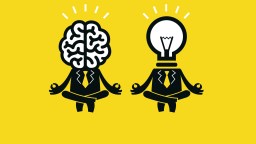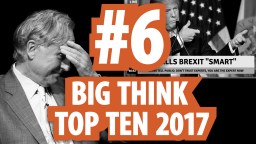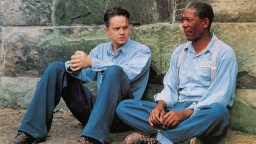Videos
All Stories
When it comes to climate change, gun control, and vaccinations, facts don’t change people’s minds—but there is one technique that might.
▸
6 min
—
with
The NASA probe to Saturn went out in a blaze of glory last week.
▸
with
The Mayor of Atlanta explains that if your version of America involves keeping “others” out, then you have yet to learn the lessons of the past.
▸
4 min
—
with
When we create something more intelligent than we could ever be, what happens after that? We have to teach it.
▸
5 min
—
with
Since Russia (most likely) hacked our Presidential election in 2016, there’s been talk of using cell phones for voting. Think again.
▸
6 min
—
with
Some anxieties are essential, and for millennia they kept our ancestors alive. But there’s another type of anxiety that we can actually do away with—and it’s defeated via hope.
▸
3 min
—
with
The #1 problem with America’s mission to spread democracy? We don’t know how to do it.
▸
9 min
—
with
Why does America confuse fantasy for reality, in pop culture and in politics? Kurt Andersen can pinpoint the moment it happened.
▸
5 min
—
with
Infants can learn a lot about the world—if adults know the right ways to encourage them.
▸
5 min
—
with
We’ve heard it before: Artificial Intelligence is coming to take our jobs. But is it really their fault, or the company that can’t figure out how to create new ones?
▸
4 min
—
with
More modern cars are easier to hack. So are pacemakers and other medical devices. What does that mean for the future?
▸
8 min
—
with
All science begins with a leap of intuition, says Richard Dawkins, but we can only ever find objective truths by knowing when to let evidence take over from emotion.
▸
4 min
—
with
Pregnancy is proving to be a crucial time to study the effects of hope and optimism within a relationship.
▸
9 min
—
with
Your mind doesn’t run parallel tasks, it has to trade off one focus for another. The good news is that mindfulness meditation can hone your attention span, and reduce stress and anxiety.
▸
6 min
—
with
Salman doesn’t know why we can’t all just get along. If both sides just talked to each other and were less emotional and more pragmatic in their arguments, we might have a better chance of coexisting.
▸
6 min
—
with
We hear the term “disrupted” a lot. But what does it mean, and why does the fear of change it represents perfectly describe how President Trump won in 2016?
▸
4 min
—
with
How do you spot terrorism before it happens? Look for patterns in what might seem like unlikely places. Like the living wage of a border guard.
▸
6 min
—
with
Do animals feel pain? Well, yes. Obviously. They may even feel pain a lot stronger than humans do.
▸
5 min
—
with
The most revelatory answers in life come from complex, diverse populations. Technology can open our eyes to what we’re missing and destroy our subconscious biases in one fell swoop.
▸
4 min
—
with
The Actors’ Gang Prison Project has spent ten years proving that teaching prisoners self-worth and emotional intelligence pays off.
▸
7 min
—
with
There’s only one guy on this whole planet who’s done both. He tells us what it’s like to experience two of the most extreme feats.
▸
3 min
—
with
The Internet is all shadows and mirrors—but what if it were the central source of truth? Thanks to Blockchain technology, it’s a future that’s possible.
▸
5 min
—
with
AI might be coming for many of the jobs in the future. But not this kind, and not ever. Here’s why.
▸
4 min
—
with
Your brain doesn’t have a watch. It doesn’t know hours or minutes—but it does understand cause and effect. And it uses this in a way to figure out time.
▸
5 min
—
with
As a young man, Bryan Cranston spent almost two years traveling the country and figuring out what he wanted to do. It helped shape who his is more than any other time in his life.
▸
7 min
—
with
Elitism has come under fire since the recent wave of populist politics. But when we don’t listen to experts, we end up listening to politicians’ lies, says Richard Dawkins.
▸
6 min
—
with
Hope is not as soft or as passive an emotion as we think. Here’s how ‘The Shawshank Redemption’ can teach us the philosophy and function of hope as a response to possibility.
▸
6 min
—
with
ORBITER was in the path of totality for the solar eclipse, and on our way, we were joking about which of us might scream. Turns out, how could you not?
▸
with
Global security expert Richard A. Clarke explains the traits of a “Cassandra”—someone who predicts colossal disasters—and why people very rarely listen to their warnings.
▸
11 min
—
with
Which country influences foreign elections the most? An extensive dataset of every election from 1946 to now has the answer.
▸
6 min
—
with





























